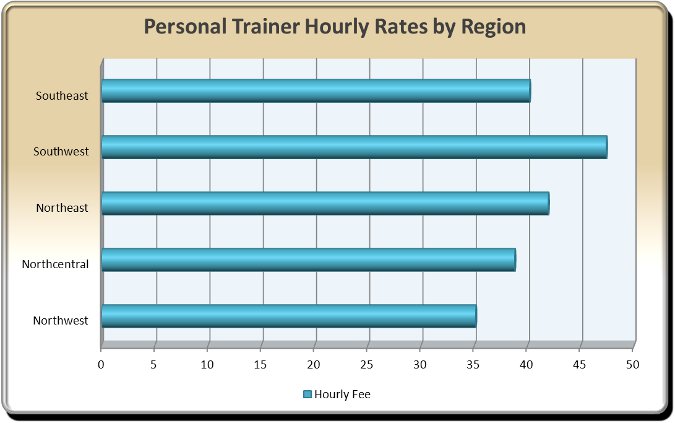
Working out in the living room is a great way to lose weight and/or get extra exercise. You can save both time and money by doing several exercises from the comfort of your own home. If you are just starting out, it's a good idea to seek the guidance of a certified instructor. They will adjust your workout plan to fit your fitness level.
A treadmill is an option if you are serious about cardio. According to the CDC adults should get at most 75 minutes of vigorous intensity exercise each week. Aerobic exercise has been proven to improve blood pressure and heart health. This is because it gets the heart pumping and triggers cholesterol and blood flow.
In addition to cardio, strength training can be added to your workout routine. Plank is one of the most effective strength-training exercises. Standing planks work your entire body. A resistance band can be added to your workout to increase its effectiveness. These bands can also be useful in working out your shoulders and nerdy neck.

A variety of indoor workout videos are available. They last between ten and an hour. Many of them offer full-body workouts, which will give you the calorie burning you desire. You can also walk, dance to music, and play games like Simon says.
You may not be familiar with the plank exercise. There are other exercises as well. Here are a few.
Place your feet shoulder-width apart on your back and place your hands on the couch's edges. You should align your hands with your shoulders. Once you are comfortable, raise your legs by using your abs. Alternatively, you can do a seated hamstring stretch.
A standing leg lift is a great strength-training exercise that doesn't require much space or equipment. This exercise can easily be repeated for multiple sets of ten reps. This involves raising one leg high and lifting the other knee toward the elbow. A resistance band can make your workout more challenging.

Many other low-impact exercise options are available in your living area. A good idea is to purchase an exercise mat to protect your floor. You can also move a sturdy seat into your living space if you don’t want to use the floor. You can make your living room a great workout area with a little imagination.
Even though there isn't a perfect workout for everyone, you can incorporate some simple stretches into your routine to help maintain a healthy physique. Stretching is an integral part of any workout. You should also take the time to practice the appropriate stretches according to your body. Some of the most important muscles in your body are your neck, shoulders, back, and abs. Unfortunately, poor posture can result in these muscles becoming weak and underdeveloped.
FAQ
What happens if I don’t get enough sleep?
Insufficient sleep can cause your brain to not receive the signals necessary for hormone regulation and other chemicals involved in controlling appetite and metabolism. In turn, this can cause you to eat more and gain weight. Insufficient sleep can lead to stress, which can cause overeating.
Which Is more important? Exercise, diet, sleep?
It all depends on your goals. If you want to lose weight, diet is the most important factor. If you are looking to build muscle mass, however, exercise is the best option. Sleep is the last important factor, as it has little to do with how well your day goes.
Do I lose weight if I exercise?
Yes. Regular exercise is a great way to lose weight. Your metabolism will remain high, so you can continue to burn calories even though you're not exercising.
Do I need to eat before working out?
No. You don't have to eat before you start working out. It is possible to snack on yogurt or fruit if you are hungry after your workout.
Is it safe for me to exercise in cold temperatures?
If possible, go outside. You can exercise outside regardless of the weather. Other factors include visibility, humidity, precipitation and wind speed. Layers of clothing should be worn if you are exercising outside in inclement temperatures.
Can I exercise after eating?
It depends on what type of exercise you're performing. After meals, avoid strenuous physical activity because it could cause stomach cramps. Focus instead on light aerobic exercises like biking or walking briskly.
Statistics
- Adolescent girls were less active than adolescent boys, with 85% vs. 78% not meeting WHO recommendations of at least 60 minutes of moderate to vigorous intensity physical activity per day. (who.int)
- Globally, 81% of adolescents aged 11-17 years were insufficiently physically active in 2016. (who.int)
- In high-income countries, 26% of men and 35% of women were insufficiently physically active, as compared to 12% of men and 24% of women in low-income countries. (who.int)
- An estimated 110,000 deaths per year could be prevented (cdc.gov)
External Links
How To
How to stay fit at 40
This article will help those over 40 who want to maintain a healthy body. It covers some basic advice on how to eat right, exercise, sleep well and take care of your mental health. This article contains tips and tricks to live longer, healthier lives.
-
Healthy eating habits are key to staying fit. You should avoid processed foods products and opt to eat whole grains, fruits, vegetables and lean meats, fish and nuts as well as beans, seeds, nuts and seeds. Don't be afraid to change your diet if the food you are eating is not what you prefer. Don't starve yourself; this won't help you lose weight. Start incorporating small amounts of new foods into your daily diet. If you eat chicken breast most of the time, try turkey one week. If you are a fan of pasta, rice is a good option. These foods should be a part of your daily life.
-
Exercise - Workout at least 3 times per week. Include cardio activities like running, swimming, biking and dancing. Also, make sure you get enough rest. Sleeping for 8 hours per night is recommended. You should also ensure you get enough water throughout the day. You should aim to consume 2 liters (0.5 Gallons) of water per day.
-
Sleep Well - Getting adequate sleep is essential to staying fit. The National Sleep Foundation estimates that adults need to get 7-8 hours sleep each night to achieve optimal physical and psychological health. Most people get less than 6 hours sleep each night. If you find that you are constantly tired throughout the day, try making adjustments to your sleeping habits. Adjusting your schedule to go to bed earlier and waking up later will allow you to catch up on extra sleep. You can also turn off your smartphone before you go to sleep so you can relax and wind down. Avoid caffeine after noon, as it can cause sleeplessness.
-
Take Care of Your Mental Health - Taking good care of your mind is crucial for keeping your body healthy. Stress can lead you to make poor choices in food and lifestyle choices. You should practice stress management techniques, such as yoga, meditation, breathing exercises, or relaxation. Do something that is enjoyable for at least an hour. This could be taking a stroll outside, reading a book or listening to music.
These four steps will ensure you live longer. These four simple steps will help achieve your fitness goals.